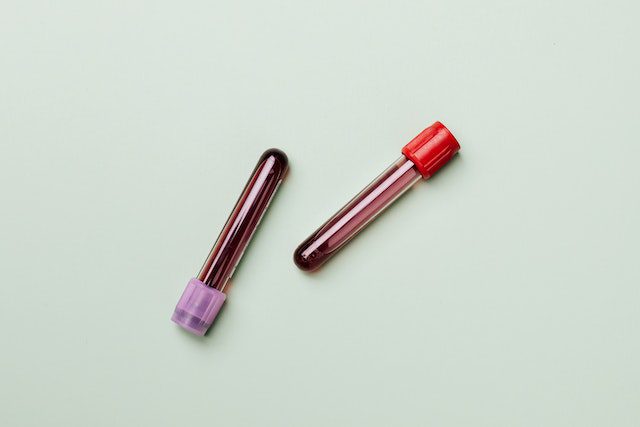
The ABO blood group system is the most important blood-typing system in human blood transfusion.
The rarest blood type is AB-, constituting only 1% of the population.
What are the most common blood types?
There are more than 33 recognised blood types and here are the most common ones:
- AB-
- AB+
- O
Individuals with AB- are often called “Universal Recipients” because they can receive red blood cells from all donors, regardless of blood type. However, people with AB- can only donate to other individuals with AB-.
AB+ is the second rarest blood type, and it is estimated to occur in 3% of the population. Like those with AB-, people with this Blood type can donate to any recipient, but they can only receive from other donors with AB+.
O- is the most common Blood type, making up about 38% of the population. People with O- can receive red blood cells from everyone, but they can only donate to others who have O-.
In total, these four Blood types make up about 99% of the world’s population. The remaining 1% consists of a variety of rarer Blood types that are not as compatible for transfusion purposes.
Although the ABO system is the most important blood-typing system, there are many other blood-typing systems in use today. The second most important system is the Rh system, which consists of 50 different antigens.
The most common type of Rh-positive blood is type O, followed by type A. Type B and AB are relatively rare, making up less than 10% of the population combined.
Like the ABO system, people with Rh-positive blood can donate to anyone regardless of their own Blood type. However, people with Rh-negative blood can only receive from donors with the same Blood type.
There are a variety of other lesser-known blood typing systems in use today, but these are not as important as ABO or Rh when it comes to transfusions.
In general, the rarer the Blood type, the more difficult it is to find compatible donors. For example, people with AB- blood make up less than 1% of the population and are therefore considered to have a very rare Blood type.
As a result, finding compatible donors can be challenging for people with rare blood types. However, there are steps that can be taken to increase the chances of finding a compatible donor.
One option is to search for donor registries that cater to people with rare Blood types. These registries exist in many countries around the world and provide a way for people with rare Blood types to find compatible donors.
Know your blood type now by buying this: Home Blood Typing Kit
Another option is to participate in directed donation programs. In these programs, potential donors are screened in advance to see if they are eligible to donate specifically for someone with a rare Blood type.
There are also private cord blood banks that store cord blood from babies born through Cesarean section (C-section). This cord blood can be used by anyone, regardless of their Blood type.
Although having a rare blood type can make it more difficult to find a compatible donor, there are several options available that can help increase the chances of finding a match. With the right resources and support, people with rare Blood types can find the donors they need.







